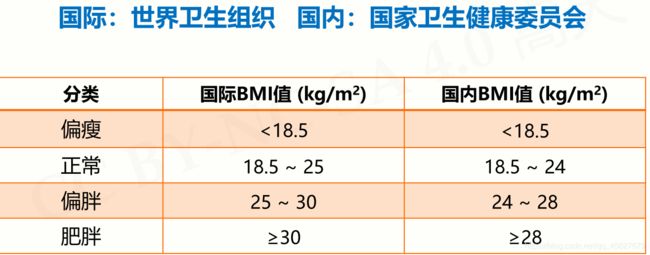- Seaborn 教程
froginwe11
开发语言
Seaborn教程引言Seaborn是一个强大的Python数据可视化库,它建立在Matplotlib的基础上,专门用于统计图形的绘制。Seaborn提供了一系列的绘图功能,使得统计数据的可视化变得更加简单和直观。本文将为您提供一个全面的Seaborn教程,帮助您快速掌握其基本用法和高级技巧。安装与导入在开始之前,请确保您的Python环境中已经安装了Seaborn和Matplotlib。您可以使
- python中的logger包的详细使用教程
SunkingYang
#python入门之日志使用python日志logger使用方法说明
文章目录功能说明一、Logger的创建与基础配置二、Handler的配置与使用三、Formatter自定义日志格式四、记录不同级别的日志五、高级配置与最佳实践六、常见问题与调试使用方法一、基础配置与快速使用二、自定义Logger对象三、高级用法四、最佳实践与注意事项五、实际应用场景示例Python的logging模块是标准库中用于记录日志的核心工具,通过灵活配置可实现多级别、多目标、多格式的日志管
- 10分钟掌握Python缓存
项目背景代码检查项目,需要存储每一步检查的中间结果,最终把结果汇总并写入文件中在中间结果的存储中可以使用context进行上下文的传递,但是整体对代码改动比较大,违背了开闭原则也可以利用缓存存储,处理完成之后再统一读缓存并写入文件在权衡了不同方案后,我决定采用缓存来存储中间结果。接下来,我将探讨Python中可用缓存组件。python缓存分类决定选择缓存,那么python中都有哪些类型的缓存呢?1
- Go与Python爬虫对比及模板实现
go语言和Python语言都可选作用来爬虫项目,因为python经过十几年的累积,各种库是应有尽有,学习也相对比较简单,相比GO起步较晚还是有很大优势的,么有对比就没有伤害,所以我利用一个下午,写个Go爬虫,虽说运行起来没啥问题,但是之间出错的概率太高了,没有完备的模版套用得走很多弯路,这就是为啥go没有python受欢迎的原因。为何Go爬虫远没有Python爬虫流行?1、历史生态差距Python
- pip设置国内源:阿里云、腾讯云、清华大学源
[email protected]
Pythonpippython
更换Python的pip源(尤其是默认源访问速度较慢时)是一个常见需求,可以显著提升安装Python包的速度。以下是如何为pip设置国内源的步骤,以阿里云、腾讯云、清华大学源为例:1.备份原有源配置(可选但推荐)在进行任何更改之前,备份现有的pip配置文件是一个好习惯。这样,如果遇到问题,你可以轻松恢复到初始状态。Bash1mkdir~/.pip_backup2cp~/.pip/pip.conf~
- 前端如何借助 Postman 进行接口性能调优
前端视界
前端艺匠馆前端postmanluaai
前端如何借助Postman进行接口性能调优关键词:前端开发、Postman、接口性能调优、API测试、性能分析摘要:本文围绕前端开发中借助Postman进行接口性能调优展开。首先介绍了相关背景知识,包括目的、预期读者、文档结构和术语表。接着阐述了核心概念,如接口性能的相关概念及其联系,并给出了对应的文本示意图和Mermaid流程图。详细讲解了核心算法原理和具体操作步骤,结合Python代码示例进行
- 数据分析全流程:从收集到可视化的高效实战
晨曦543210
python
1.数据收集来源:数据库、API、传感器、日志文件、社交媒体、问卷调查等。工具:Python(requests、Scrapy)、SQL、Excel、Kafka(实时流数据)。2.数据清洗处理缺失、重复、错误或不一致的数据:缺失值:删除、填充(均值/中位数/众数)、插值或预测。异常值:使用箱线图、Z-score或IQR方法检测并处理。格式标准化:统一日期、单位、文本格式(如大小写、去除空格)。去重:
- R语言初学者爬虫简单模板
q56731523
r语言爬虫开发语言iphone
习惯使用python做爬虫的,反过来使用R语言可能有点不太习惯,正常来说R语言好不好学完全取决于你的学习背景以及任务复杂情况。对于入门学者来说,R语言使用rvest+httr组合,几行代码就能完成简单爬取(比Python的Scrapy简单得多),R语言数据处理优势明显,爬取后可直接用dplyr/tidyr清洗,小打小闹用R语言完全没问题,如果是企业级大型项目还是有限考虑python,综合成本还是p
- 邻近巷道爆破振动模拟与可视化:计算力学的工程应用
碳酸的唐
动态规划数学建模
引言隧道爆破施工是现代工程建设中常用的方法,但爆破产生的振动会对周围结构和地质环境产生影响。本文介绍一个基于Python的邻近巷道爆破振动模拟系统,该系统通过数值计算模拟爆破引起的应力波传播过程,并提供多种可视化方式展示振动效应。本研究对于理解爆破振动机理、评估爆破安全距离以及优化爆破参数具有重要意义。理论基础爆破应力波传播模型爆破引起的应力波在岩体中的传播可通过弹性波动理论描述。在均匀介质中,应
- 手把手教你编写Python抢购脚本_抢单脚本的制作教程
网络安全小宇哥
python开发语言测试工具学习web安全网络安全安全架构
想买苹果手机,但总是抢不到,所以想试着能不能写个脚本代码。第一步:把想要抢购的商品加进购物车,注意:脚本是对购物车内全部商品进行下单操作,所以不够买的商品最好先从购物车内删除。第二步:写好Python脚本,在抢购之前运行,并设置好抢购时间。Python脚本实现安装Python。我安装的是anaconda安装webdriver扩展。它是Selenium模块的一部分。Selenium是一个用于Web应
- 【Python】类(class)的创建
Herbert_JL
pythonpythonlinux
1类简介1.1什么是类在面向对象编程(OOP)中,类(Class)是一种封装了数据和操作这些数据的函数的编程结构。它是一种抽象的概念,用于定义具有相同属性(变量)和方法(函数)的对象的模板。类可以看作是一个“蓝图”,用于创建具有相同特征和行为的对象实例。1.2类的作用1.2.1封装(Encapsulation)类将数据(属性)和操作数据的方法封装在一起,形成一个独立的单元。这样可以隐藏内部实现细节
- 【Python】类的继承、重载与多态
类的继承(Inheritance)类的继承是面向对象编程(OOP)中的一个重要概念,它允许一个类(称为子类或派生类)继承另一个类(称为父类或基类)的属性和方法。继承可以提高代码的复用性,减少重复代码,并且能够构建出层次化的类结构。继承的基本概念父类(基类):被继承的类,提供了可以被继承的属性和方法。子类(派生类):继承父类的类,可以使用父类的属性和方法,并且还可以添加新的属性和方法,或者覆盖父类的
- 【Python】For
Herbert_JL
pythonpython开发语言
For基本语法forelementiniterable:statement(s)element:是循环变量,用于存储可迭代对象中当前遍历到的元素。iterable:是需要遍历的可迭代对象,如列表、元组、字典等。for遍历列表fruits=["apple","banana","cherry"]forfruitinfruits:print(fruit)applebananacherryfor遍历字符串
- 【python 进阶】argparse模块
Herbert_JL
pythonpythonjavalinux
argparse模块Python的argparse模块用于解析命令行参数,使得脚本能够灵活地接受用户从命令行传入的各种参数,从而根据不同的参数配置来执行不同的操作。ArgumentParser类argparse.ArgumentParser是Python中argparse模块的核心类,用于创建一个解析器对象,该对象能够读取和解析命令行参数和选项,将它们转换为相应的数据类型,并提供给程序使用。功能常
- 在python中function啥类型_Python中function和method
这两个概念已经有很多人解释过了,从本文的『参考』中就可以看出来。之所以还要写一篇这个主题,主要是为了用自己的语言表述一下,并且尽可能的讲的清楚一点。泛泛地说,function是一般意义上的函数,即对一段代码的封装,并由一个地址(函数名)来调用。method通常是面向对象的概念,即method是属于一个类或类的对象的。method是与类或类的对象相关的函数。下面讲一下我对这两个概念的更具体的理解。如
- 【pytorch】——Could not export Python function call ‘Scatter‘
pytorch用pytorch的trace导出模型的时候,报错errorRuntimeError:CouldnotexportPythonfunctioncall'Scatter'.RemovecallstoPythonfunctionsbeforeexport.Didyouforgettoadd@scriptor@script_methodannotation?Ifthisisann.Modul
- Python中如何将非内置数据类型导出成Json格式
前言:在Python开发中往往使用自定义的数据类型来封装属性特定对象。但是这些自定义的数据类型在导出成Json文件时往往会报出不支持的错误。本篇文章将介绍如何解决这个问题。操作步骤:1、创建自定义数据类型:fromdataclassesimportdataclassimportjson@dataclassclassOwnObject():prop1:strprop2:int2、将自定义数据类型导出
- 探索AI人工智能领域多智能体系统的技术原理
AI大模型应用之禅
人工智能网络ai
探索AI人工智能领域多智能体系统的技术原理关键词:AI人工智能、多智能体系统、技术原理、智能体交互、分布式计算摘要:本文深入探索了AI人工智能领域多智能体系统的技术原理。首先介绍了多智能体系统的背景,包括其目的、预期读者、文档结构和相关术语。接着阐述了多智能体系统的核心概念与联系,通过文本示意图和Mermaid流程图进行清晰展示。详细讲解了核心算法原理,结合Python源代码进行说明,并给出了相关
- 【剪裁Patch】已标注的WSI剪裁Patch的处理流程(以QuPath软件得到的标注信息为例)
X CODE
WSI病理图像QuPathPython
1.整体处理思路整体处理流程如图所示,概括来说就是:根据标注信息将WSI区分为肿瘤区域和正常区域,对这个区域进行采样裁剪得到具有Patch级别标签的Patch。当然,这里的Patch标签是根据标注信息决定的,如果标注的是癌症亚型信息,那么也可以将不同亚型的Patch区分出来。那么下面就对每个步骤进行介绍以及提供具体的Python代码。2.详细步骤(提供代码)2.0标注文件示例以下是用QuPath软
- 23.5.15---在python中读取excel表格数据并可视化
多一点灵性
pythonmatplotlib开发语言机器学习
目录1.在python中通过以下代码可以防止运行结果出现中文乱码的情况(如画图时)2.在将excel表格文件中的数据读取出来,并将其中的两列数据作为行列坐标用图画出来2.1设置坐标轴显示的刻度及范围3.在PythonConsole清除运行的控制台数据使用:1.在python中通过以下代码可以防止运行结果出现中文乱码的情况(如画图时)##设置字符集,防止中文乱码importmatplotlibasm
- 从零到精通:Linux上的Conda环境详细教程
第一章:Conda简介Conda的定义Conda是一个开源的包管理系统和环境管理系统,可以在多个平台上安装、运行和更新软件包和依赖项。Conda最初是为Python和R语言的数据科学包创建的,但现在支持多种编程语言和工具。Conda的主要功能和优势包管理:Conda能够自动处理包的依赖关系,确保每个包所需的库和工具都被正确安装。它支持从各种渠道安装包,如CondaForge和Anaconda官方仓
- Briefcase 项目常见问题解决方案
刘梓苹
Briefcase项目常见问题解决方案briefcaseToolstosupportconvertingaPythonprojectintoastandalonenativeapplication.项目地址:https://gitcode.com/gh_mirrors/br/briefcase1.项目基础介绍和主要编程语言Briefcase是一个由BeeWare项目开发的工具,旨在帮助开发者将Py
- Ubuntu20.04切换源
dongdundun
ubuntulinux运维
一、ubuntu20.04系统重装二、工具安装1.更换Ubuntu源更换conda源更换pip源2.安装QQqq闪退卸载安装wine版QQ3.安装搜狗输入法及中文设置安装搜狗输入法中文设置4.安装vim5.安装google6.安装VsCode7.安装python3的opencv8.安装向日葵向日葵闪退9.ubuntu下识别不到U盘10.安装Typora11.安装百度网盘12.安装ceres库(优化
- yolov5/v7/v8/v9/v10环境详细配置教程(Windows+conda+pycharm)
视觉算法er
深度学习环境配置YOLO目标检测人工智能深度学习condapycharm
一、所需环境配置1.1.虚拟环境创建首先,打开AnacondaPrompt命令窗口,创建一个新的虚拟环境,后面的包都在这个环境中安装。创建命令是:我的习惯是使用3.8版本的python,你也可以换成更高版本;condacreate-nyolopython=3.8输入命令后,运行结果如下:输入y即可;1.2.激活虚拟环境安装完成后,即可激活虚拟环境,输入以下命令即可;condaactivateyol
- Python 领域 Conda 的集群环境部署经验
Python领域Conda的集群环境部署经验关键词:Conda、Python环境管理、集群部署、环境复制、依赖管理、虚拟环境、Anaconda摘要:本文深入探讨了在集群环境中使用Conda进行Python环境部署的最佳实践。我们将从Conda的核心概念出发,详细讲解环境创建、依赖管理、环境复制和集群部署的全流程。文章包含实际案例、性能优化技巧和常见问题解决方案,旨在帮助读者掌握高效、可靠的Pyth
- Python pip与Conda环境的兼容性问题
Pythonpip与Conda环境的兼容性问题关键词:Python环境管理、pip与conda冲突、依赖解析、虚拟环境、包管理、兼容性解决方案、依赖冲突摘要:本文深入探讨Python生态中pip和conda两种主流包管理工具的兼容性问题。我们将从底层机制分析冲突根源,通过具体案例展示常见问题场景,并提供多种解决方案和最佳实践。文章包含详细的依赖解析算法分析、环境隔离技术比较,以及通过实际代码演示如
- python中操作数据库
seiseilalei
python数据库pythonsql
python中cursor操作数据库(转)原文出处:http://doudouclever.blog.163.com/blog/static/175112310201284115340663/python操作数据库,要安装一个Python和数据库交互的包MySQL-python-1.2.2.win32-py2.5.exe,然后我们就可以使用MySQLdb这个包进行数据库操作了。操作步骤如下:1、建
- 用队列实现生产者-消费者模型 —— 详解与代码讲解
百年孤独_
C语言项目计算机网络C操作系统
用队列实现生产者-消费者模型——详解与代码讲解一、引言生产者-消费者问题(Producer-ConsumerProblem)是操作系统、并发编程和数据结构课程中的经典案例。它描述了两个角色:生产者负责生产数据并放入缓冲区,消费者则从缓冲区取出数据进行消费。两者通过一个共享的缓冲区(通常为队列)进行协作,既要保证数据的正确流转,又要避免资源竞争和数据丢失。本篇文章将以循环队列为核心,详细讲解如何用C
- Python:爬虫基础《爬取红楼梦》
小说爬虫项目说明文档用于爬取诗词名句网上小说内容的Python爬虫项目。本项目以《红楼梦》为例,演示如何爬取完整的小说内容。项目功能爬取小说的所有章节名称获取每个章节的URL链接下载并保存每个章节的内容到独立的文本文件自动创建存储目录包含基本的错误处理和请求延迟环境要求Python3.x依赖包:requestsbeautifulsoup4logging安装依赖pipinstallrequestsb
- python之数据库操作
婵婵子~
python数据库python
python操作sqlserver数据库python标准数据库接口为pythonDB-API,具体可参考:https://wiki.python.org/moin/DatabaseInterfacesPython的DB-API,为大多数的数据库实现了接口,使用它连接各数据库后,就可以用相同的方式操作各数据库。PythonDB-API使用流程:引入API模块。获取与数据库的连接。执行SQL语句和存储
- github中多个平台共存
jackyrong
github
在个人电脑上,如何分别链接比如oschina,github等库呢,一般教程之列的,默认
ssh链接一个托管的而已,下面讲解如何放两个文件
1) 设置用户名和邮件地址
$ git config --global user.name "xx"
$ git config --global user.email "
[email protected]"
- ip地址与整数的相互转换(javascript)
alxw4616
JavaScript
//IP转成整型
function ip2int(ip){
var num = 0;
ip = ip.split(".");
num = Number(ip[0]) * 256 * 256 * 256 + Number(ip[1]) * 256 * 256 + Number(ip[2]) * 256 + Number(ip[3]);
n
- 读书笔记-jquey+数据库+css
chengxuyuancsdn
htmljqueryoracle
1、grouping ,group by rollup, GROUP BY GROUPING SETS区别
2、$("#totalTable tbody>tr td:nth-child(" + i + ")").css({"width":tdWidth, "margin":"0px", &q
- javaSE javaEE javaME == API下载
Array_06
java
oracle下载各种API文档:
http://www.oracle.com/technetwork/java/embedded/javame/embed-me/documentation/javame-embedded-apis-2181154.html
JavaSE文档:
http://docs.oracle.com/javase/8/docs/api/
JavaEE文档:
ht
- shiro入门学习
cugfy
javaWeb框架
声明本文只适合初学者,本人也是刚接触而已,经过一段时间的研究小有收获,特来分享下希望和大家互相交流学习。
首先配置我们的web.xml代码如下,固定格式,记死就成
<filter>
<filter-name>shiroFilter</filter-name>
&nbs
- Array添加删除方法
357029540
js
刚才做项目前台删除数组的固定下标值时,删除得不是很完整,所以在网上查了下,发现一个不错的方法,也提供给需要的同学。
//给数组添加删除
Array.prototype.del = function(n){
- navigation bar 更改颜色
张亚雄
IO
今天郁闷了一下午,就因为objective-c默认语言是英文,我写的中文全是一些乱七八糟的样子,到不是乱码,但是,前两个自字是粗体,后两个字正常体,这可郁闷死我了,问了问大牛,人家告诉我说更改一下字体就好啦,比如改成黑体,哇塞,茅塞顿开。
翻书看,发现,书上有介绍怎么更改表格中文字字体的,代码如下
- unicode转换成中文
adminjun
unicode编码转换
在Java程序中总会出现\u6b22\u8fce\u63d0\u4ea4\u5fae\u535a\u641c\u7d22\u4f7f\u7528\u53cd\u9988\uff0c\u8bf7\u76f4\u63a5这个的字符,这是unicode编码,使用时有时候不会自动转换成中文就需要自己转换了使用下面的方法转换一下即可。
/**
* unicode 转换成 中文
- 一站式 Java Web 框架 firefly
aijuans
Java Web
Firefly是一个高性能一站式Web框架。 涵盖了web开发的主要技术栈。 包含Template engine、IOC、MVC framework、HTTP Server、Common tools、Log、Json parser等模块。
firefly-2.0_07修复了模版压缩对javascript单行注释的影响,并新增了自定义错误页面功能。
更新日志:
增加自定义系统错误页面功能
- 设计模式——单例模式
ayaoxinchao
设计模式
定义
Java中单例模式定义:“一个类有且仅有一个实例,并且自行实例化向整个系统提供。”
分析
从定义中可以看出单例的要点有三个:一是某个类只能有一个实例;二是必须自行创建这个实例;三是必须自行向系统提供这个实例。
&nb
- Javascript 多浏览器兼容性问题及解决方案
BigBird2012
JavaScript
不论是网站应用还是学习js,大家很注重ie与firefox等浏览器的兼容性问题,毕竟这两中浏览器是占了绝大多数。
一、document.formName.item(”itemName”) 问题
问题说明:IE下,可以使用 document.formName.item(”itemName”) 或 document.formName.elements ["elementName&quo
- JUnit-4.11使用报java.lang.NoClassDefFoundError: org/hamcrest/SelfDescribing错误
bijian1013
junit4.11单元测试
下载了最新的JUnit版本,是4.11,结果尝试使用发现总是报java.lang.NoClassDefFoundError: org/hamcrest/SelfDescribing这样的错误,上网查了一下,一般的解决方案是,换一个低一点的版本就好了。还有人说,是缺少hamcrest的包。去官网看了一下,如下发现:
- [Zookeeper学习笔记之二]Zookeeper部署脚本
bit1129
zookeeper
Zookeeper伪分布式安装脚本(此脚本在一台机器上创建Zookeeper三个进程,即创建具有三个节点的Zookeeper集群。这个脚本和zookeeper的tar包放在同一个目录下,脚本中指定的名字是zookeeper的3.4.6版本,需要根据实际情况修改):
#!/bin/bash
#!!!Change the name!!!
#The zookeepe
- 【Spark八十】Spark RDD API二
bit1129
spark
coGroup
package spark.examples.rddapi
import org.apache.spark.{SparkConf, SparkContext}
import org.apache.spark.SparkContext._
object CoGroupTest_05 {
def main(args: Array[String]) {
v
- Linux中编译apache服务器modules文件夹缺少模块(.so)的问题
ronin47
modules
在modules目录中只有httpd.exp,那些so文件呢?
我尝试在fedora core 3中安装apache 2. 当我解压了apache 2.0.54后使用configure工具并且加入了 --enable-so 或者 --enable-modules=so (两个我都试过了)
去make并且make install了。我希望在/apache2/modules/目录里有各种模块,
- Java基础-克隆
BrokenDreams
java基础
Java中怎么拷贝一个对象呢?可以通过调用这个对象类型的构造器构造一个新对象,然后将要拷贝对象的属性设置到新对象里面。Java中也有另一种不通过构造器来拷贝对象的方式,这种方式称为
克隆。
Java提供了java.lang.
- 读《研磨设计模式》-代码笔记-适配器模式-Adapter
bylijinnan
java设计模式
声明: 本文只为方便我个人查阅和理解,详细的分析以及源代码请移步 原作者的博客http://chjavach.iteye.com/
package design.pattern;
/*
* 适配器模式解决的主要问题是,现有的方法接口与客户要求的方法接口不一致
* 可以这样想,我们要写这样一个类(Adapter):
* 1.这个类要符合客户的要求 ---> 那显然要
- HDR图像PS教程集锦&心得
cherishLC
PS
HDR是指高动态范围的图像,主要原理为提高图像的局部对比度。
软件有photomatix和nik hdr efex。
一、教程
叶明在知乎上的回答:
http://www.zhihu.com/question/27418267/answer/37317792
大意是修完后直方图最好是等值直方图,方法是HDR软件调一遍,再结合不透明度和蒙版细调。
二、心得
1、去除阴影部分的
- maven-3.3.3 mvn archetype 列表
crabdave
ArcheType
maven-3.3.3 mvn archetype 列表
可以参考最新的:http://repo1.maven.org/maven2/archetype-catalog.xml
[INFO] Scanning for projects...
[INFO]
- linux shell 中文件编码查看及转换方法
daizj
shell中文乱码vim文件编码
一、查看文件编码。
在打开文件的时候输入:set fileencoding
即可显示文件编码格式。
二、文件编码转换
1、在Vim中直接进行转换文件编码,比如将一个文件转换成utf-8格式
&
- MySQL--binlog日志恢复数据
dcj3sjt126com
binlog
恢复数据的重要命令如下 mysql> flush logs; 默认的日志是mysql-bin.000001,现在刷新了重新开启一个就多了一个mysql-bin.000002
- 数据库中数据表数据迁移方法
dcj3sjt126com
sql
刚开始想想好像挺麻烦的,后来找到一种方法了,就SQL中的 INSERT 语句,不过内容是现从另外的表中查出来的,其实就是 MySQL中INSERT INTO SELECT的使用
下面看看如何使用
语法:MySQL中INSERT INTO SELECT的使用
1. 语法介绍
有三张表a、b、c,现在需要从表b
- Java反转字符串
dyy_gusi
java反转字符串
前几天看见一篇文章,说使用Java能用几种方式反转一个字符串。首先要明白什么叫反转字符串,就是将一个字符串到过来啦,比如"倒过来念的是小狗"反转过来就是”狗小是的念来过倒“。接下来就把自己能想到的所有方式记录下来了。
1、第一个念头就是直接使用String类的反转方法,对不起,这样是不行的,因为Stri
- UI设计中我们为什么需要设计动效
gcq511120594
UIlinux
随着国际大品牌苹果和谷歌的引领,最近越来越多的国内公司开始关注动效设计了,越来越多的团队已经意识到动效在产品用户体验中的重要性了,更多的UI设计师们也开始投身动效设计领域。
但是说到底,我们到底为什么需要动效设计?或者说我们到底需要什么样的动效?做动效设计也有段时间了,于是尝试用一些案例,从产品本身出发来说说我所思考的动效设计。
一、加强体验舒适度
嗯,就是让用户更加爽更加爽的用
- JBOSS服务部署端口冲突问题
HogwartsRow
java应用服务器jbossserverEJB3
服务端口冲突问题的解决方法,一般修改如下三个文件中的部分端口就可以了。
1、jboss5/server/default/conf/bindingservice.beans/META-INF/bindings-jboss-beans.xml
2、./server/default/deploy/jbossweb.sar/server.xml
3、.
- 第三章 Redis/SSDB+Twemproxy安装与使用
jinnianshilongnian
ssdbreidstwemproxy
目前对于互联网公司不使用Redis的很少,Redis不仅仅可以作为key-value缓存,而且提供了丰富的数据结果如set、list、map等,可以实现很多复杂的功能;但是Redis本身主要用作内存缓存,不适合做持久化存储,因此目前有如SSDB、ARDB等,还有如京东的JIMDB,它们都支持Redis协议,可以支持Redis客户端直接访问;而这些持久化存储大多数使用了如LevelDB、RocksD
- ZooKeeper原理及使用
liyonghui160com
ZooKeeper是Hadoop Ecosystem中非常重要的组件,它的主要功能是为分布式系统提供一致性协调(Coordination)服务,与之对应的Google的类似服务叫Chubby。今天这篇文章分为三个部分来介绍ZooKeeper,第一部分介绍ZooKeeper的基本原理,第二部分介绍ZooKeeper
- 程序员解决问题的60个策略
pda158
框架工作单元测试
根本的指导方针
1. 首先写代码的时候最好不要有缺陷。最好的修复方法就是让 bug 胎死腹中。
良好的单元测试
强制数据库约束
使用输入验证框架
避免未实现的“else”条件
在应用到主程序之前知道如何在孤立的情况下使用
日志
2. print 语句。往往额外输出个一两行将有助于隔离问题。
3. 切换至详细的日志记录。详细的日
- Create the Google Play Account
sillycat
Google
Create the Google Play Account
Having a Google account, pay 25$, then you get your google developer account.
References:
http://developer.android.com/distribute/googleplay/start.html
https://p
- JSP三大指令
vikingwei
jsp
JSP三大指令
一个jsp页面中,可以有0~N个指令的定义!
1. page --> 最复杂:<%@page language="java" info="xxx"...%>
* pageEncoding和contentType:
> pageEncoding:它
